This article was medically reviewed by Luba Lee, FNP-BC, MS. Luba Lee, FNP-BC is a Board-Certified Family Nurse Practitioner (FNP) and educator in Tennessee with over a decade of clinical experience. Luba has certifications in Pediatric Advanced Life Support (PALS), Emergency Medicine, Advanced Cardiac Life Support (ACLS), Team Building, and Critical Care Nursing. She received her Master of Science in Nursing (MSN) from the University of Tennessee in 2006.
There are 9 references cited in this article, which can be found at the bottom of the page.
This article has been viewed 31,321 times.
IBS or irritable bowel syndrome is a common issue that affects the lower intestine or colon. There is no known cause of IBS at this time. However people who have IBS report that a variety of foods and beverages can cause a flare in their symptoms. Although most people who have IBS experience only intermittent symptoms, they can include: intestinal pain, cramping, bloating, diarrhea or constipation.[1] If you have IBS you need to be aware of what foods or beverages set off symptoms so you can avoid or limit them in your diet. Make sure to choose foods and beverages that are IBS-friendly so you do not have to worry about a spontaneous flare up of symptoms.
Steps
Looking for IBS-Friendly Drinks
-
1Be aware of your triggers. IBS is a very hard condition to manage and control. Everyone has different symptoms and may have different triggers.[2] To help you find IBS-friendly beverages, be aware of your own trigger foods.
- You may want to consider keeping a journal or a note pad. You can write down different foods, beverages or meals that you've had and what symptoms you experienced after ingesting them.
- Over time, you may be able to notice a pattern or be able to pick out certain foods or ingredients that will trigger your symptoms.
- When looking for IBS-friendly beverages, keep this list of triggers in the back of your mind and make sure they do not pop up on the ingredient list in any beverage you're going to purchase or consume.
-
2Start reading food labels. If you have IBS it's important to start reading food labels. This is where you'll find information on the nutritive value of the beverage, but also the ingredients.[3]
- For many people that suffer with IBS, certain foods or ingredients can trigger the onset of symptoms. Reading the food label, especially the ingredient list, can help you avoid symptoms.
- Although the nutrition fact panel is helpful and informative, it will not provide you information on ingredients or the types of added sugars in a beverage. You'll need to review the ingredient list.
- The ingredient list is found next to or below the nutrition fact panel. The ingredients listed are ordered from the one in greatest quantity to the one in the least quantity. Review this list to look out for certain trigger items.
Advertisement -
3Look out for high-fructose corn syrup. One particular ingredient that has been implicated in more frequent IBS flare ups is high-fructose corn syrup (HFCS).[4] This ingredient is found in many foods, so watch out and read your labels carefully.
- HFSC is a sweetener that is found in many, many foods. Some studies have shown that higher intakes of HFCS has triggered IBS symptoms like bloating or diarrhea.
- Most food manufacturers do not advertise that they use HFSC in their products. You'll need to review the entire ingredient list and look for high-fructose corn syrup in the list. If it is listed, do not purchase or consume this product.
- HFSC is frequently found in the following beverages: regular sodas, fruit juice cocktails, chocolate milk, sweetened sports drinks, lemonade and fruit drinks. Note that not all brands of these items do contain HFSC, so you'll need to read the label on your favorite brands.
-
4Be aware of sugar alcohols. You should try your best to remove all processed drinks (including sodas) from your diet. If you think going for "diet beverages" is the best bet (especially when trying to avoid high-fructose corn syrup), think again. Many of these diet beverages have additives that also can trigger an IBS flare up.
- Many diet beverages contain artificial sweeteners or sugar alcohols to make their beverages taste sweet without the use of sugar. They're typically found in diet sodas, teas and diet fruit juice.
- However, many studies have shown that sugar alcohols in particular are a significant cause of IBS flare ups.[5]
- There are a variety of sugar alcohols that can be used to sweeten drinks. However, a key way of picking them out of an ingredient list is to look for words that end in "-ol".
- Sugar alcohols to watch out for include: sorbitol, mannitol, maltitol, xylitol, and isomalt.
- If you see a diet beverage that lists any of these sugar alcohols as an ingredient, do not purchase or consume it.
-
5Watch out for vegetable juices. One of the proposed causes of some IBS symptoms are foods that are high in FODMAPs (fermentable oligosaccharides, disaccharides, monosaccharides, and polyols). These foods include a variety of vegetables, and when consumed, can bring on IBS symptoms.[6]
- Vegetable juice may sound like a nutritious and healthy beverage to have. Although it does contain a variety of vitamins and minerals, some of the vegetables used to make the juice may cause a flare up in IBS symptoms.
- When you're considering a vegetable juice, look at the ingredient list to see what exact vegetables and what juices are used to make that particular blend.
- Don't drink any juices that contain beets, cabbage, fennel, legumes, peas, avocados, cauliflower, or snow peas.
- You can and should drink juices that contain carrots, celery, chives, broccoli, cucumber, ginger parsley, pumpkin, spinach, zucchini, squash, yams, turnips and eggplant.
- Specifically watch out for juices made with: garlic, onions, beets or celery. Do not purchase vegetable juice blends that contain these ingredients.
- If possible, try to make your own juices rather than buying commercial ones. Carrot and potato juice are especially good for reducing inflammation.
Drinking IBS-Friendly Beverages
-
1Go for mostly water. When you're trying to choose beverages that will be good for IBS and not cause symptoms, your best choice is water. It's all natural and hydrating which is the right combination for those suffering from IBS.
- Most health professionals recommend that adults drink about 64 oz or eight glasses of water daily. However, some people may need up to 13 glasses daily based on gender and activity level.[7]
- If you experience diarrhea as a symptom of IBS, you'll need to replace the fluids lost in your stool with additional water. In times of IBS flare ups, drink closer to 13 glasses daily.
- You can try some water flavorings that use stevia or truvia as these no calorie sweeteners haven't been shown to aggravate IBS symptoms in most people.
- You can also try making infused waters at home. These give your water an all natural flavor without the use of any sugars or no calorie sweeteners. Mix fresh fruit, vegetables and herbs and let water sit overnight.
- Drink room temperature water, not ice water.
- Drink water about 30 minutes before a meal, because it dilutes and deactivates digestive enzymes in your stomach.
-
2Drink decaf tea. Since caffeine is a known gastrointestinal stimulant which can irritate your GI tract, pick decaf tea instead. Decaf tea can be an enjoyable beverage to choose if you suffer from IBS.[8]
- Decaf coffee still contains some traces of caffeine, so it should be avoided.
- Herbal tea is naturally decaffeinated. Try to drink it warm or room temperature to avoid upsetting your GI system. Chamomile tea can also be soothing for people with IBS.
- Ginger tea is something you may want to consider having more often. It's decaf but also can help soothe an upset stomach.
-
3Use caution when consuming dairy products. Dairy products are a questionable group of foods for those suffering with IBS. Although dairy products do not bother everyone, it's quite common to have lactose intolerance with IBS.[9]
- Dairy foods can be problematic for those with IBS for two reasons. To start with, dairy products, especially whole milk products, contain a higher amount of fat. This may cause IBS symptoms — especially diarrhea.
- The lactose in dairy products is a natural sugar but is frequently not tolerated well with those who have IBS. Gas, bloating and cramping are common side effects after consuming these foods.
- Stay away from milk (especially whole milk), chocolate milk (especially if it contains high-fructose corn syrup) and other milk based beverages (even decaf lattes).
- Try incorporating dairy-free milks like rice milk or almond milk. If fat doesn't bother you, try lactose-free milk instead.
-
4Make your own fruit or vegetable juices. Try not to drink commercial juices. If you enjoy the occasionally glass of fruit or vegetable juice, consider making fresh juice at home. This allows you to choose specific fruits and vegetables and feel confident that they won't affect your IBS.
- If you drink juices regularly or would like to, consider buying a juicer at home. This will allow you to make a variety of juices right in your own home with whatever fruits and vegetables you like.
- Many fruits do not cause a problem for those with IBS. You can generally include fruits like: cranberries, bananas, grapefruits, grapes, pineapples and lemons. If you want to sweeten your juice, choose honey, agave syrup or regular white sugar.
- Vegetable juices should only be made from foods that don't cause symptoms. Stay clear from onions, garlic, and beets. However, most other vegetables shouldn't cause a problem.
-
5Make your own bone broth. Bone broth can help soothe IBS symptoms. Bone broth is easy to digest and full of nutrients.[10] Here's a quick way to make your own bone broth:
- Put the following ingredients in a pot: 3 pounds grass-fed beef bones; 2 tablespoons apple cider vinegar, preferably Bragg's; 1 tablespoon whole dried peppercorns; 1 tablespoon sea salt; enough water to fill the pot mostly (this is not an exact measurement); and any other spices you want to add, such as bay leaves, onions, carrots, celery, or sage.
- Let your ingredients sit for an hour, unheated.
- Turn on the heat and bring your broth to a boil.
- Next, you should move your entire broth to a crock pot. Be careful when moving the bones; you might want to put them in first. Then pour your entire broth into the crock pot.
- Let your broth simmer in the crock pot for anywhere between 4-72 hours, depending on how concentrated you want your broth to be. Try starting by letting it simmer for 5-8 hours.
- Let your broth cool and then store it. You can also keep the bones and store then for later use.
- Drink your bone broth! You can add some butter to it to make it more palatable on its own, or you can use it in soup.
Avoiding Drinks that Can Worsen IBS Symptoms
-
1Stay away from sweetened beverages. Since high-fructose corn syrup is a common sweetener found in many sugary beverages, it's best to try to limit or avoid these types of drinks.
- Not only are sweetened beverages linked to increased IBS symptoms, they are also linked with weight gain and other chronic health issues.[11]
- Eliminate regular soda, sweetened coffee drinks, milkshakes, chocolate milk, fruit drinks, fruit juice cocktails, lemonade and sweet tea.
- Remember that diet drinks can also be an issue due to the sugar alcohols they contain. Regardless of what you choose, always read the label.
-
2Drink little to no caffeinated beverages. Caffeinated beverages are something people swear by to get their GI systems going. This stimulant is something that causes increased symptoms in those suffering with IBS.[12]
- Caffeine, whether from coffee or tea, acts as a stimulant as it passes through your GI system. For those with IBS, this can cause intestinal cramping, pain and diarrhea.
- Limit or avoid beverages with caffeine. Always choose decaf beverages if possible.
- You can try caffeinated tea that has been watered down a bit. However, try only a small quantity of this to see if you can tolerate it well.
-
3Limit carbonated beverages. Another large group of beverages that you should consider limiting are carbonated beverages. Anything that has a little fizz to it could set off symptoms.[13]
- Many people think some carbonated beverages, especially ginger ale, are good for your stomach. Although sometimes ginger-based sodas can soothe an upset stomach, this is not true for those that have IBS.
- The carbonation found in these fizzy beverages can cause additional cramping, bloating and stomach upset. They generally do not cause diarrhea or constipation.
- Avoid sodas, tonic water, seltzer water, sparkling flavored water, sparkling iced tea, beer and sparkling wines.
-
4Steer clear from alcohol. The occasionally alcoholic beverage isn't usually a problem for most people. However, this is an irritant and causes increased symptoms for those suffering with IBS.
- It's typically never recommended for women to have more than 1 drink daily and men to have 2 drinks daily.[14] Most IBS sufferers can have very small quantities of alcohol without experiencing symptoms.
- However, a study showed that with alcohol intake at 4 drinks or greater, there were increases in symptoms like indigestion, diarrhea, stomach pain and nausea.[15]
- It's OK to have the occasional glass of wine (especially since it's not carbonated) if it does not trigger unwanted symptoms. However, keep it to a 4 oz serving every now and again instead of daily or in larger quantities.
References
- ↑ http://www.mayoclinic.org/diseases-conditions/irritable-bowel-syndrome/basics/definition/con-20024578
- ↑ http://www.mayoclinic.org/diseases-conditions/irritable-bowel-syndrome/basics/definition/con-20024578
- ↑ http://www.fda.gov/Food/IngredientsPackagingLabeling/LabelingNutrition/ucm274593.htm
- ↑ http://health.usnews.com/health-news/health-wellness/articles/2015/06/16/how-to-manage-irritable-bowel-syndrome
- ↑ http://www.everydayhealth.com/ibs/ibs-whats-in-your-cup.aspx
- ↑ http://www.everydayhealth.com/ibs/ibs-whats-in-your-cup.aspx
- ↑ http://www.mayoclinic.org/healthy-lifestyle/nutrition-and-healthy-eating/in-depth/water/art-20044256
- ↑ http://www.everydayhealth.com/ibs/ibs-whats-in-your-cup.aspx
- ↑ https://www.hopkinsmedicine.org/health/conditions-and-diseases/irritable-bowel-syndrome-ibs/5-foods-to-avoid-if-you-have-ibs
- ↑ https://www.ncbi.nlm.nih.gov/pmc/articles/PMC5470704/
- ↑ http://www.everydayhealth.com/ibs/ibs-whats-in-your-cup.aspx
- ↑ https://www.hopkinsmedicine.org/health/conditions-and-diseases/irritable-bowel-syndrome-ibs/5-foods-to-avoid-if-you-have-ibs
- ↑ http://www.nhs.uk/Conditions/Irritable-bowel-syndrome/Pages/Causes.aspx
- ↑ https://www.niaaa.nih.gov/alcohol-health/overview-alcohol-consumption/moderate-binge-drinking
- ↑ http://www.everydayhealth.com/ibs/ibs-whats-in-your-cup.aspx

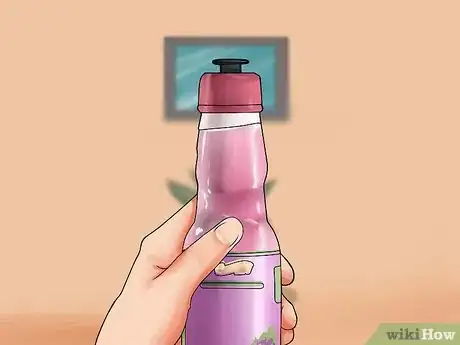

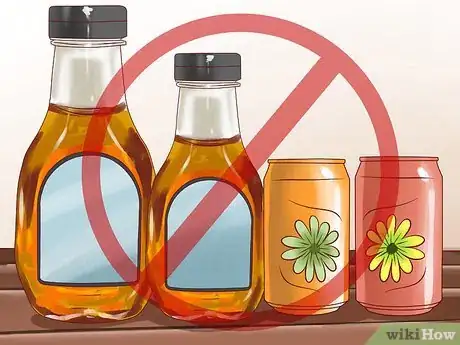

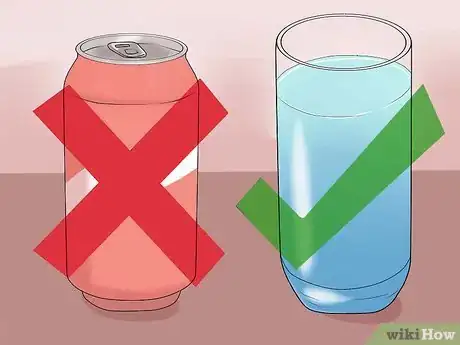

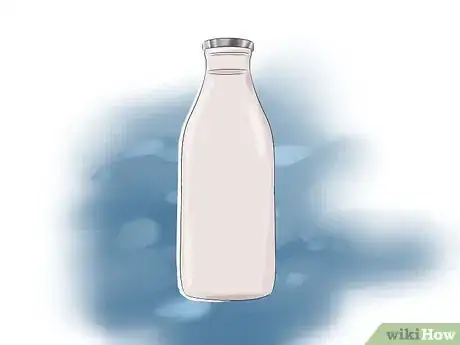
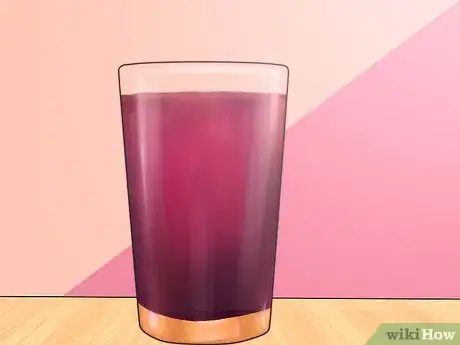
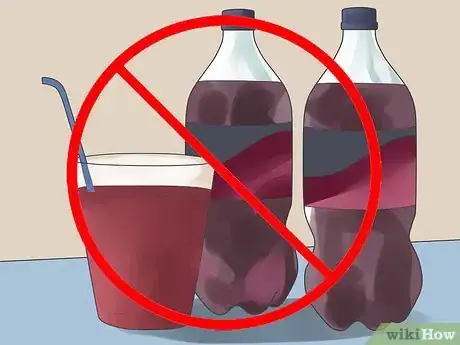
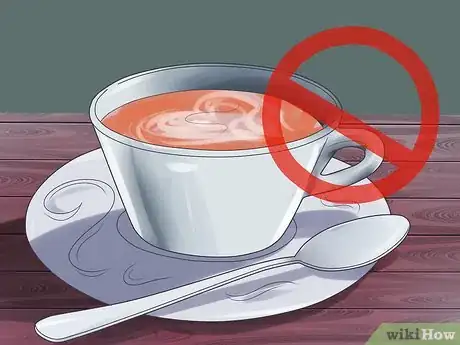
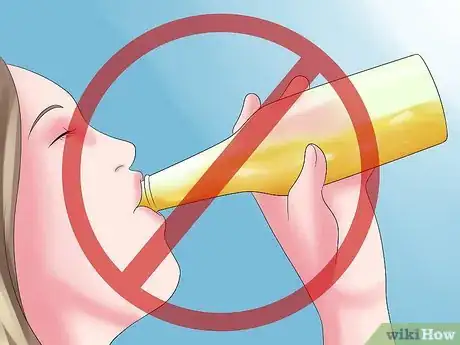
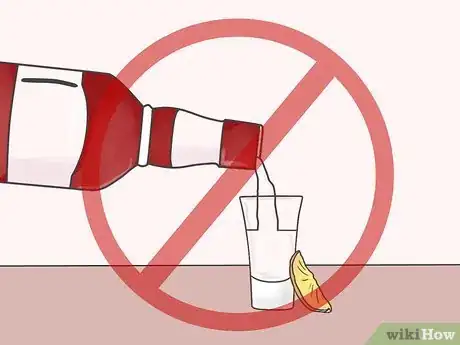









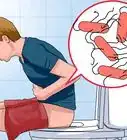





































Medical Disclaimer
The content of this article is not intended to be a substitute for professional medical advice, examination, diagnosis, or treatment. You should always contact your doctor or other qualified healthcare professional before starting, changing, or stopping any kind of health treatment.
Read More...